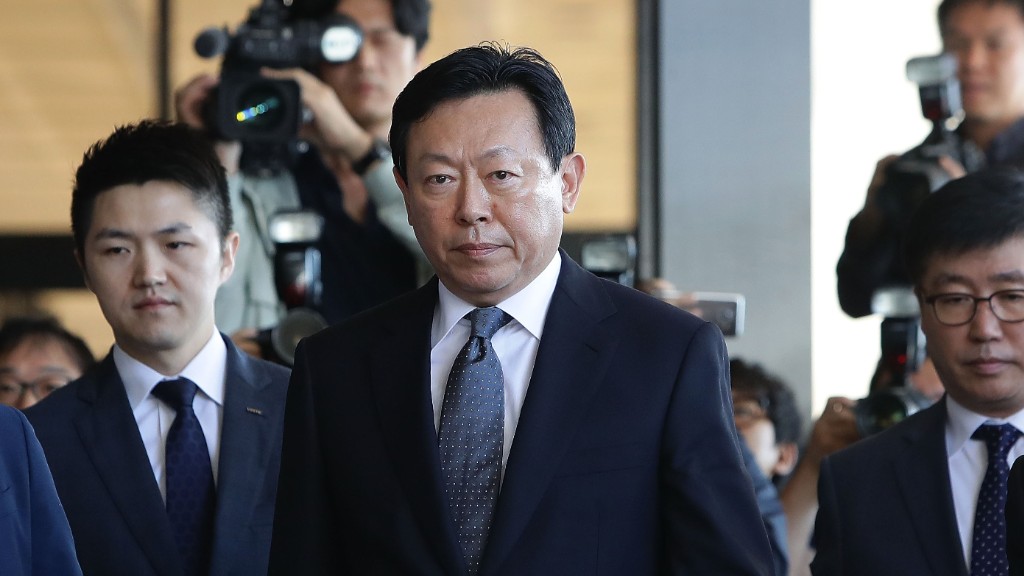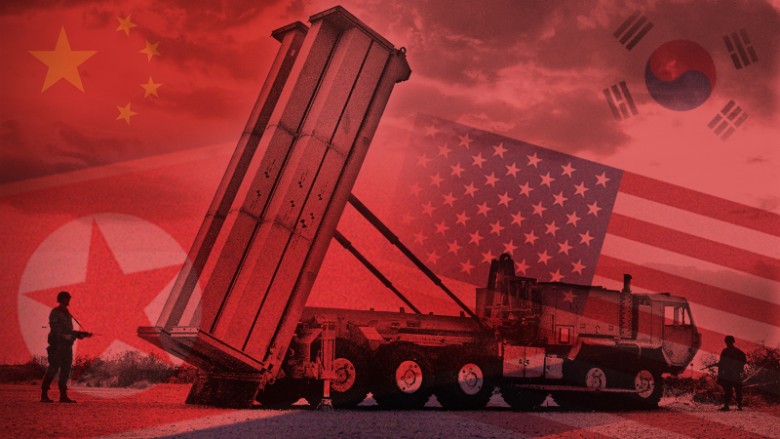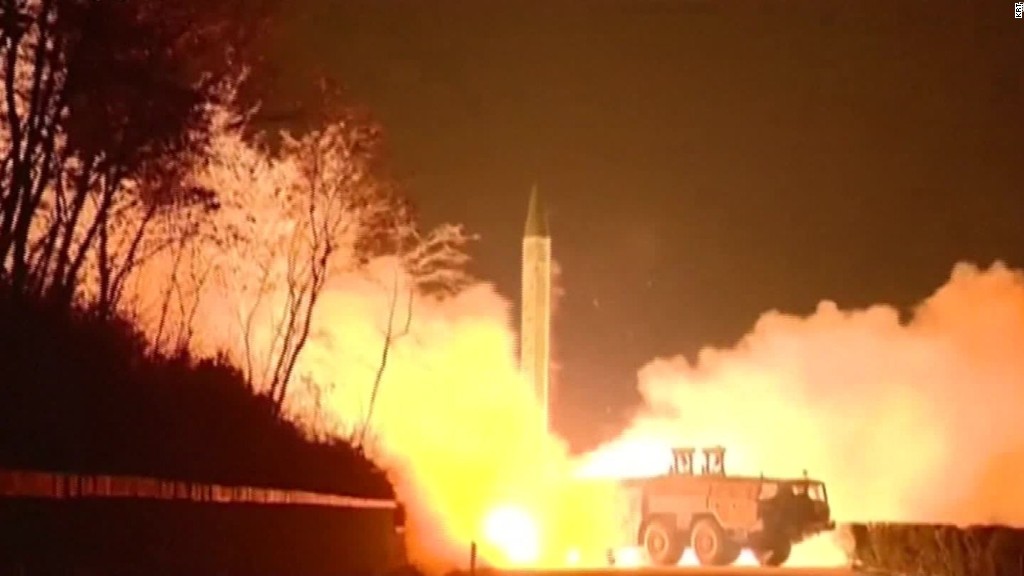
President Trump wants South Korea to foot the bill for a $1 billion U.S. missile defense system and is threatening to kill the free trade deal between the two countries.
His comments aren't sitting well with officials in South Korea, a key American ally in Asia. One foreign policy expert called the remarks "shameless."
"I informed South Korea it would be appropriate if they pay," Trump said in an interview with Reuters on Thursday. "That's a billion dollar system."
He was talking about the Terminal High Altitude Area Defense (THAAD) system, which is being deployed in South Korea in an effort to reduce the threat from North Korean missiles.
Related: Pence says trade with South Korea must change
The THAAD deployment has already caused tensions inside South Korea and hurt the country's relations with China. Trump's comments are likely to further complicate the situation.
"It's collateral damage to the [U.S.-South Korea] alliance," said Euan Graham, director of the Lowy Institute's international security program.
South Korean Defense Minister Han Min-koo has repeatedly said his country won't bear the cost of the system.
"There has been no change in our basic position that the South Korean government provides the site and infrastructure for THAAD ... and the U.S. side shoulders the cost of its deployment, operation and maintenance," the Defense Ministry said in a statement Friday.
In addition, a South Korean official told CNN on Friday that a "confidential agreement" signed last year by senior U.S. and South Korean military officials states that "the U.S. bears the cost of deploying THAAD."
Related: China is crushing South Korea's tourism industry
Washington and Seoul first announced plans for the deployment of the THAAD system in July, before Trump's election. The two countries have a mutual defense treaty, and more than 28,000 U.S. troops are stationed in South Korea.
"We're going to protect them," Trump told Reuters. "But they should pay for that, and they understand that."

On the campaign trail, Trump frequently said South Korea and other key U.S. allies should pay more for the defense provided by the U.S.
THAAD is unpopular among a significant portion of the South Korea public and has become a key issue ahead of the country's presidential election on May 9. Parts of the system arrived at the deployment site this week, with officials saying it would be operational "in the coming days."
Related: Anti-missile system in South Korea operational in 'coming days'
The current frontrunner in the election, Moon Jae-in, has taken a lukewarm stance on THAAD and argued the system should not be installed until a new administration is elected.
"It is shameless for the U.S. to ask South Korea to pay for THAAD given that they are deploying it not only to protect South Koreans but also Americans in South Korea, American territory and for the security" of the region, said Kim Ki-jung, a foreign policy adviser to Moon and a professor at Yonsei University in Seoul.

The THAAD battery in Asia is part of a broader network of defense systems in East Asia. None of them would be able to protect Seoul, South Korea's biggest city that lies only about 35 miles from the border with North Korea. That distance means it's vulnerable to shorter-range rockets and artillery.
China has made clear its opposition to THAAD, which it says is a threat to its security and destabilizing for the region, by putting pressure on South Korean companies and the country's tourism industry.
Related: South Korean company to China: Don't blame us for THAAD missiles
Trump also caused confusion in South Korea by telling Reuters he intends to renegotiate or terminate the free trade pact between the U.S. and South Korea, describing it as a "horrible" deal. The agreement will be targeted for renegotiation after his government finishes an overhaul of NAFTA with Canada and Mexico, he said.
His comments were more combative than those of his Vice President Mike Pence, who earlier this month told business leaders in South Korea that the U.S. government would work with them to "reform" the trade deal.
South Korea has yet to receive an official request to negotiate the trade deal, a senior official of the country's Trade Ministry told CNN. The ministry is trying to figure out why Trump made his latest remarks about the agreement, said the official, who declined to be identified by name.
-- James Griffiths and Pamela Boykoff contributed to this report.
